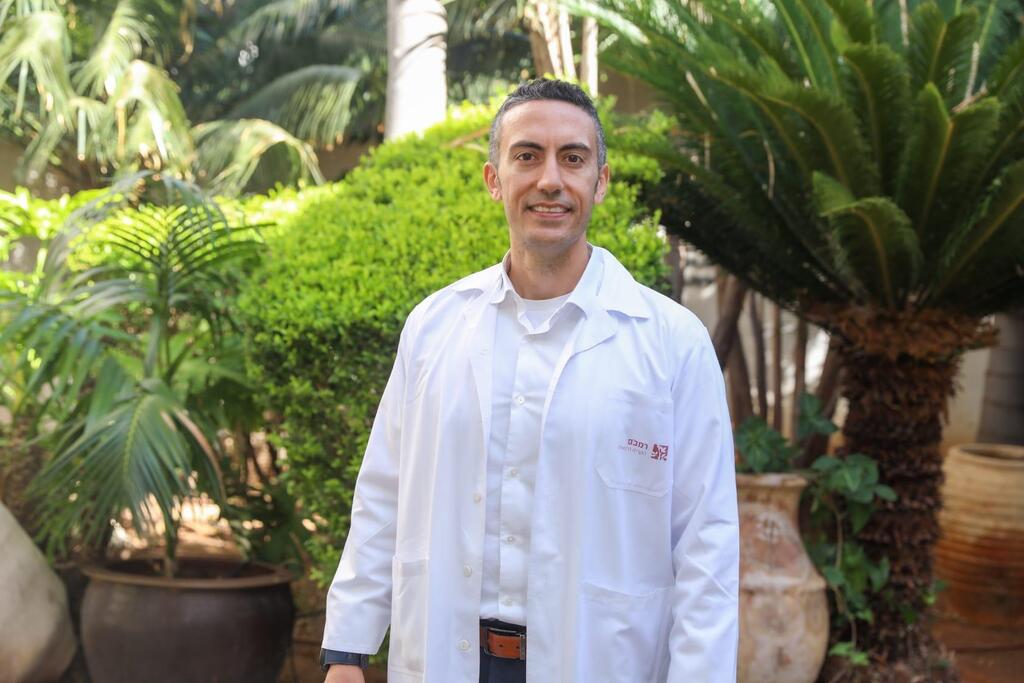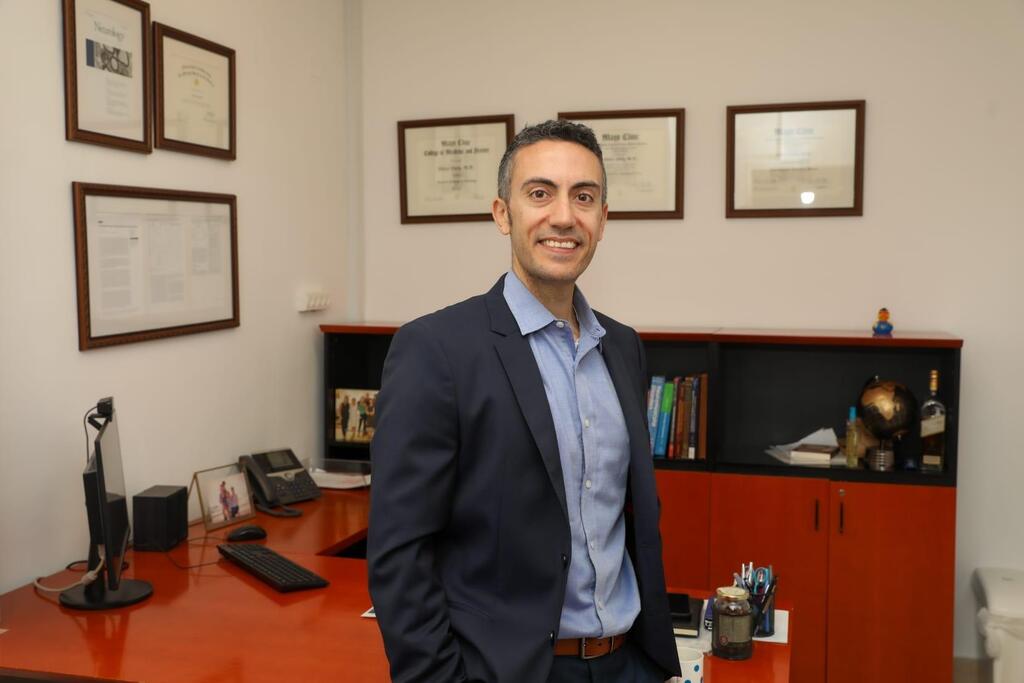Getting your Trinity Audio player ready...
As State Comptroller Matanyahu Englman warns of Israeli doctors leaving the country and discussions about "relocation" within the medical community continue, there are doctors returning to Israel after extended stays abroad. Some have completed fellowships or advanced training and have chosen to return despite attractive offers from prestigious institutions worldwide.
One such doctor is Dr. Shahar Shelly, a Senior Associate Consultant in Neurology at Rambam Health Care Campus, who has found a unique sense of belonging in Israel that cannot be replaced elsewhere. "There is something special about working in our country, with our culture and our language," Shelly said.
"Yes, there are significant challenges here," he added. "The healthcare system needs more resources, and burnout is a daily struggle across all frameworks—but the feeling that we are contributing to our society, to the place we came from and belong to, is irreplaceable."
According to Shelly, "In Israel, we are not just doctors but part of a wide and supportive community, connected to a shared history and common values. Here, every encounter with a patient can become personal and meaningful, where we not only treat the body but also embrace the soul. This sense of mission, of giving, and the ability to profoundly and genuinely impact the lives of those around us is what makes the difference."
Shelly returned to Israel two and a half years ago after an extended stay in Minnesota. "Living as an Israeli doctor abroad means carrying a different cultural baggage than those around you, which can lead to extreme differences, especially regarding military service and our worldview. In Israel, there is a sense that you are part of one fabric; abroad, it’s different, you don't feel at home," he said.
Shelly also noted the cultural differences in patient communication: "Here, there is a lot of openness, a sort of 'all cards on the table,' while in the U.S., there is a lot of distance, and communication with the patient is more rigid. In Israel, there is a lot of warmth that does not exist overseas. As an Israeli doctor abroad, I would do my job faithfully, perhaps even excellently, but with my patients here, a different connection is formed that is valid only in this environment, in Hebrew, in blue and white. I missed that, and it’s what brought me back to Israel and what keeps me here now."
He added, "As Israelis, we have a set of shared values and experiences, like military service, Jewish holidays, and the feeling of being part of a small but cohesive nation. Abroad, it’s hard to find people who understand the significance of Memorial Day or the joy of Independence Day. You miss the small nuances in the language, the inside jokes, and the immediate understanding you have with people who grew up in the same culture."
The decision to return was also driven by "the matter of Zionism and the deep desire to help people in our country. We were at the best hospital in the world, ranked number one for almost 30 years, so it was a very difficult decision. But here, in Israel, are our roots. Here we grew up, here is our family—and here we believe we need to be."
Shelly shared his feelings against the backdrop of the State Comptroller's warnings and noted, "It makes me feel like we are missing the point where medicine can serve as a kind of engine for national growth. It's not like a regular profession; it’s a sensitive profession because you are treating people. We are a country that needs every person here, but the moment you look at it individually, and everyone says to themselves, 'Why do I care, I'll move to Canada and earn better'—they miss the essence of medicine. It’s not just another profession to make money; it’s a profession with national importance—you are advancing your entire country. That’s how I see it."
'Not just doctors, part of a community'
"As (Israeli novelist) Shai Agnon once wrote, 'It seemed to me that the land I walked on and the streets I passed through and the whole world are only a vestibule to this house.' This sense of belonging and rootedness is what gives our work deeper meaning. When we are here, we are not just doctors—we are part of a community, part of a nation, and our contribution is not just professional but also national."
While acknowledging the reasons some doctors choose to leave, Shelly emphasized the pain of hearing about it. "While you can earn better and work less hard abroad, it is not like any other profession—medicine has immense national importance, and it is tied to the resilience of our people. Our brain drain is significant, and good doctors are leaving." He added that "the main factors for the brain drain are working conditions and salary, but the direct impact is severe damage to the healthcare system."
Shelly believes the wave of departures can be curbed through investment in research systems and improving working conditions and salaries. "We need to ensure that doctors' salaries in Israel are competitive compared to doctors' salaries in other countries. Increasing salaries will make doctors feel more valued and reduce the incentive to leave. It’s important to provide doctors with opportunities for fellowships, courses, and advanced training. The state can collaborate with universities and research institutions to allow doctors to develop professionally. I was personally involved in a Health Ministry initiative to combat burnout, and I know it is an issue that the ministry is aware of."
He concludes with a call for unity: "In such moments, when we are challenged as a people and a nation, and everything is hanging in the balance—we are required to unite forces because we have no other place to be."




